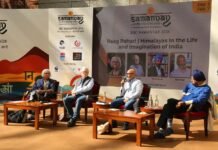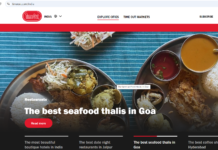The war between Indian publishers and artificial intelligence company OpenAI, the creator of the ChatGPT chatbot, is intensifying.
It all began in November 2024 with news agency ANI taking the Microsoft-backed OpenAI to court, accusing it of using its published content in an unauthorized manner to train ChatGPT.
Joining the bandwagon now is the New Delhi-based Federation of Indian Publishers, which represents names such as Bloomsbury, Penguin Random House, Cambridge University Press and Pan Macmillan, as well as India’s Rupa Publications and S Chand and Co.
The Digital News Publishers Association (DNPA) also wants to be a party to ANI’s copyright infringement suit, following which Justice Amit Bansal of the Delhi High Court issued notice. DNPA represents organizations such as ABP, Mathrubhumi, Hindustan Times, NDTV, The Hindu, The Indian Express, The New Indian Express, Zee News, Dainik Bhaskar, India Today, India TV, The Times of India, The Free Press Journal, Malayala Manorama and others, Bar and Bench reported.
Reuters has quoted Pranav Gupta, general secretary of the Federation of Indian Publishers, as saying that the court should stop OpenAI from accessing its copyright content. The lawsuit concerns the ChatGPT tool’s book summaries. “In case they don’t want to do licensing with us, they should delete datasets used in AI training and explain how we will be compensated. This impacts creativity,” he told the news agency.
OpenAI has challenged the claims, saying ChatGPT sources its information from publicly available platforms such as Wikipedia and other data that is legally available to the public.
It also sought to block the media organizations from joining the lawsuit and sought time to reply to the intervention application. Bar and Bench quoted senior Advocate Amit Sibal as saying that DNPA did not have authorization to file such an application and raised new issues.
“They (DNPA) are alleging that we (OpenAI) are going behind a paywall to get access to matters not publicly available. The book publishers and journal publishers have a different issue from ANI,” Sibal told Bar and Bench, arguing against widening the scope of the copyright case.
The case will next be heard in February.


















